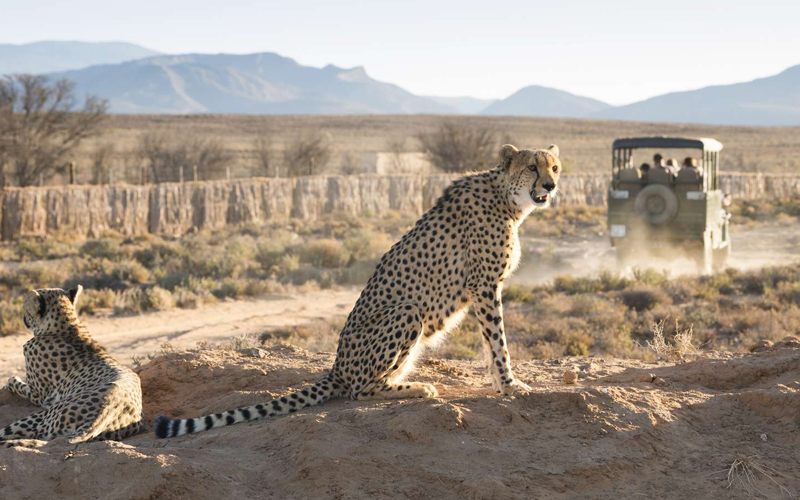Sustainable tourism is increasingly crucial as global travel grows and impacts on natural environments and local communities intensify. Tanzania, with its rich biodiversity, stunning landscapes, and vibrant cultures, faces both opportunities and challenges in balancing tourism development with conservation efforts. Here’s why sustainable tourism is vital for Tanzania and how it benefits the country, its wildlife, and its people.
Importance of Sustainable Tourism in Tanzania
Preserving Natural Resources
- Protecting Biodiversity and Ecosystems: Tanzania is home to some of the world’s most remarkable natural wonders, including the Serengeti National Park, Mount Kilimanjaro, and the Zanzibar archipelago. These areas are rich in biodiversity and provide essential habitats for a variety of species. Sustainable tourism practices help mitigate the negative impacts of tourism on these ecosystems by promoting conservation efforts and reducing the carbon footprint of travel.
- Implementation of Conservation Practices: Tourism operators in Tanzania are increasingly adopting eco-friendly practices, such as minimizing waste, using renewable energy sources, and supporting conservation projects. By adhering to these practices, they contribute to the preservation of wildlife habitats and the maintenance of ecological balance.
Supporting Local Communities
- Economic Benefits and Job Creation: Sustainable tourism supports local communities by creating jobs and generating income. Eco-lodges, community-run tours, and conservation projects often provide employment opportunities for local residents. This economic benefit helps improve living standards and supports community development initiatives.
- Promoting Cultural Preservation: Cultural tourism helps preserve and celebrate local traditions and heritage. By engaging with local communities in a respectful manner, tourists can learn about traditional practices, crafts, and ceremonies. This cultural exchange not only enriches the travel experience but also fosters pride and preservation of local cultures.
Minimizing Environmental Impact
- Reducing Carbon Footprint: One of the key principles of sustainable tourism is reducing the environmental impact of travel. This includes minimizing energy and water consumption, reducing waste, and using sustainable transportation options. In Tanzania, many tourism operators are investing in green technologies and practices to lower their environmental impact.
- Protecting Wildlife: Responsible wildlife tourism is essential for the protection of endangered species and their habitats. Sustainable practices, such as adhering to wildlife viewing guidelines and supporting anti-poaching efforts, help ensure that tourism does not disturb or harm wildlife. This approach contributes to the long-term survival of species and the health of their ecosystems.
Promoting Sustainable Practices in Tourism
- Education and Awareness: Education plays a crucial role in sustainable tourism. Tourists are encouraged to learn about the environmental and cultural significance of the destinations they visit. Tour operators and guides often provide information on how to travel responsibly, including guidelines on waste management, respecting local customs, and minimizing environmental impact.
- Certification and Standards: Various certification programs and standards, such as those from the Global Sustainable Tourism Council (GSTC), help tourism operators adhere to sustainable practices. In Tanzania, many lodges and tour operators are seeking certification to demonstrate their commitment to sustainability and to attract environmentally-conscious travelers.
Encouraging Responsible Travel Behavior
- Respecting Local Cultures: Travelers are encouraged to engage with local communities respectfully and sensitively. This involves understanding and honoring local customs and traditions, asking for permission before taking photographs, and supporting local businesses. Respectful travel behavior ensures that tourism benefits both visitors and hosts.
- Supporting Conservation Efforts: Tourists can contribute to conservation efforts by participating in or donating to wildlife protection programs and community-based conservation initiatives. By supporting these efforts, travelers help safeguard Tanzania’s natural and cultural heritage for future generations.

Francisco Raymond
Tanzania Safari Specialist
Plan a memorable Tanzanian adventure?
Save time and ensure an incredible safari experience by getting quotes from our Tanzania safari and trekking specialist
Get Free Quote

Francisco Raymond
Tanzania Safari Specialist
Plan a memorable Tanzanian adventure?
Save time and ensure an incredible safari experience by getting quotes from our Tanzania safari and trekking specialist
Sustainable tourism is crucial for the future of Tanzania’s natural landscapes and cultural heritage. By promoting conservation, supporting local communities, and minimizing environmental impact, tourism can contribute positively to the country’s development while preserving its unique assets. Embracing sustainable practices ensures that Tanzania remains a vibrant and attractive destination for years to come, benefiting both its residents and visitors alike.
FAQs
1. How can tourists contribute to sustainable tourism in Tanzania?
Tourists can contribute by practicing responsible travel behaviors, supporting eco-friendly lodges, respecting local cultures, and participating in conservation efforts.
2. What are some examples of sustainable tourism practices in Tanzania?
Examples include using renewable energy sources in lodges, minimizing waste, supporting community-based tourism, and adhering to wildlife viewing guidelines.
3. How does sustainable tourism benefit local communities in Tanzania?
Sustainable tourism creates jobs, generates income, supports community development, and promotes cultural preservation, improving the livelihoods of local residents.
4. What role do tour operators play in sustainable tourism?
Tour operators play a key role by implementing eco-friendly practices, educating tourists, supporting conservation projects, and ensuring that their activities have minimal environmental impact.
5. Are there certifications for sustainable tourism in Tanzania?
Yes, various certifications, such as those from the Global Sustainable Tourism Council (GSTC), are available to tourism operators who meet specific sustainability criteria.
For a comprehensive safari experience, explore the following highlights on our site:
- Safari in Kenya
- Serengeti Great Wildebeest Migration
- Serengeti National Park
- Tanzania Safari Packages
- Tarangire Day Trip
- Tarangire National Park
- Terms and Conditions
- What to Expect on a Safari in Tanzania?
Visit our page for detailed information and tips to plan your perfect safari adventure.


